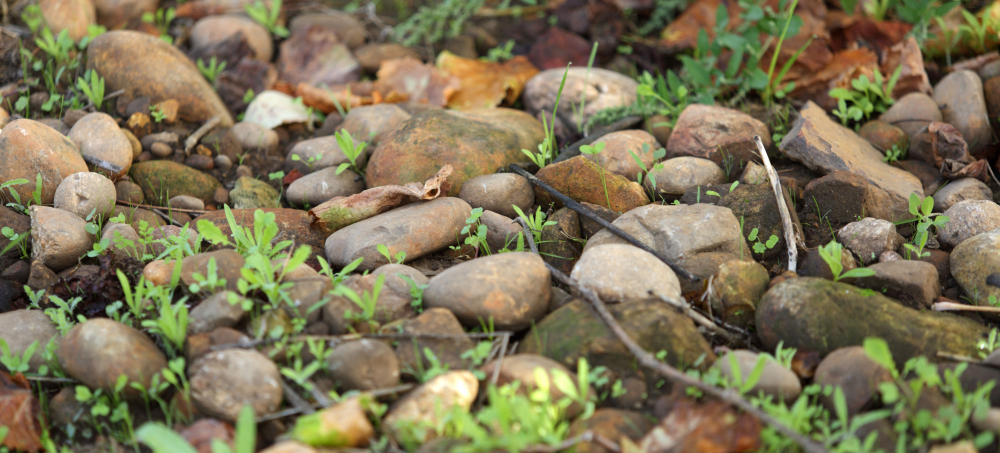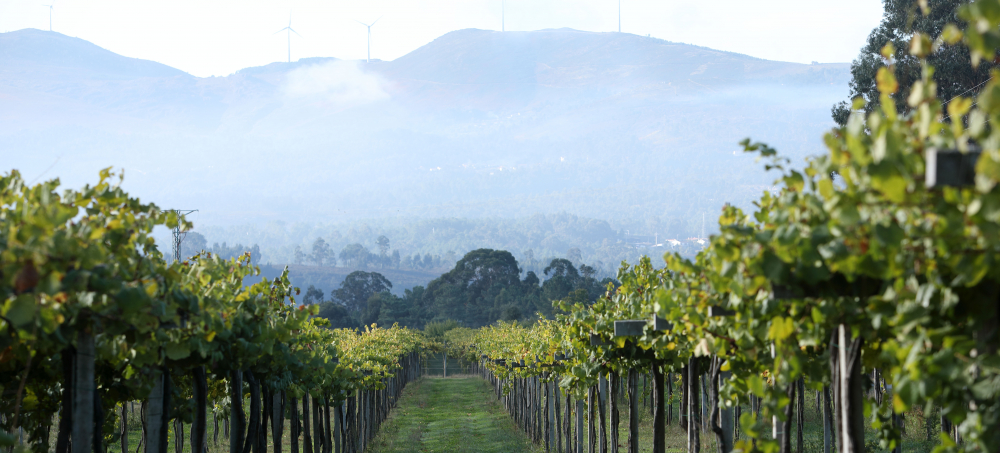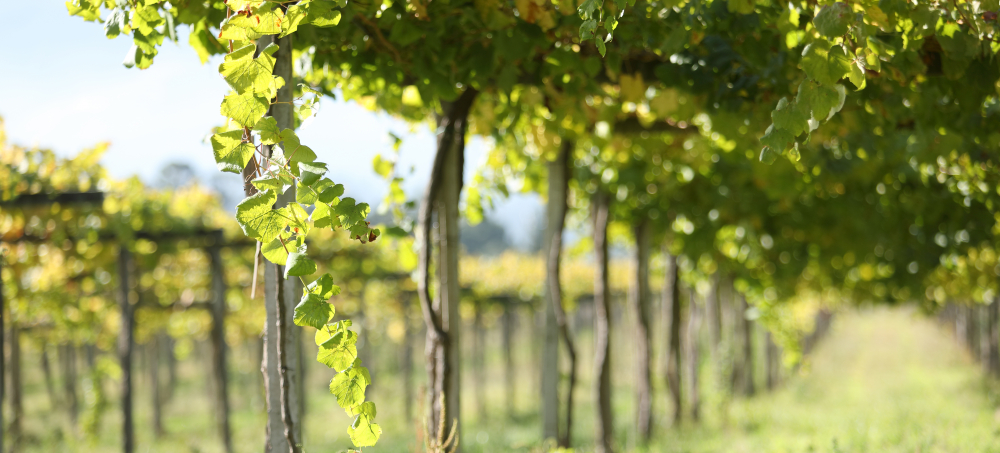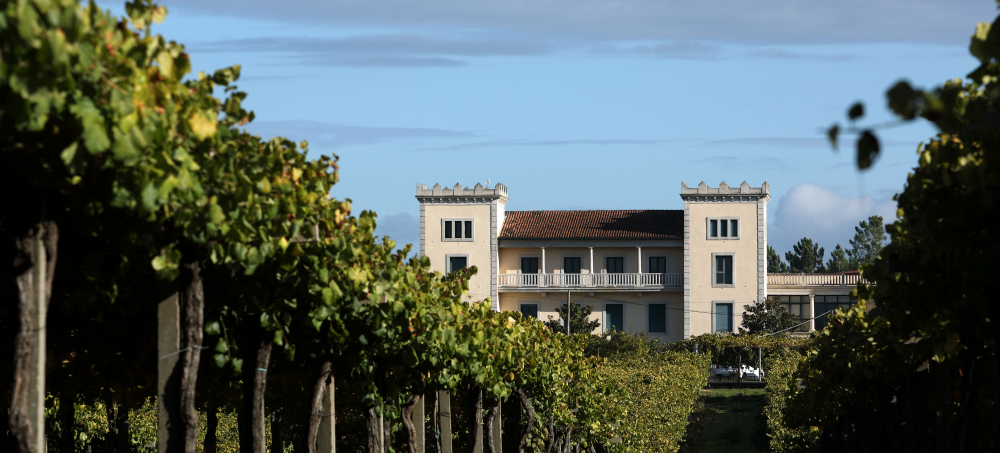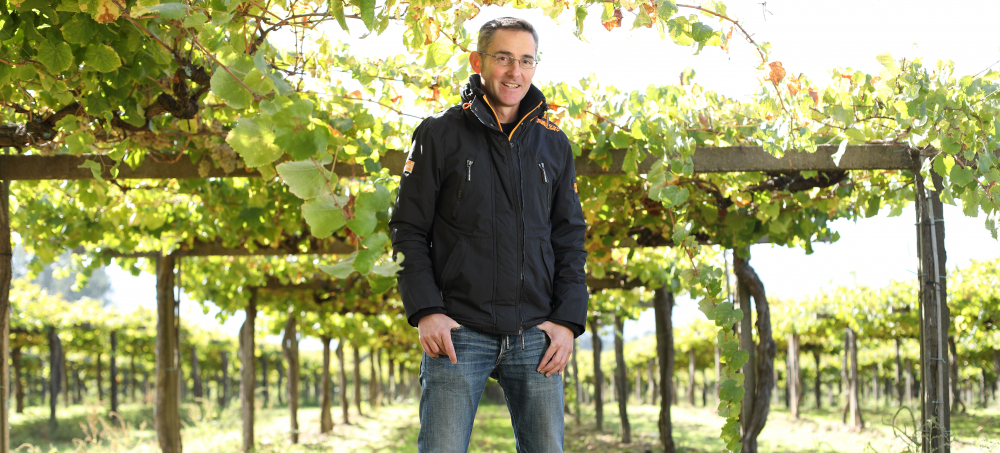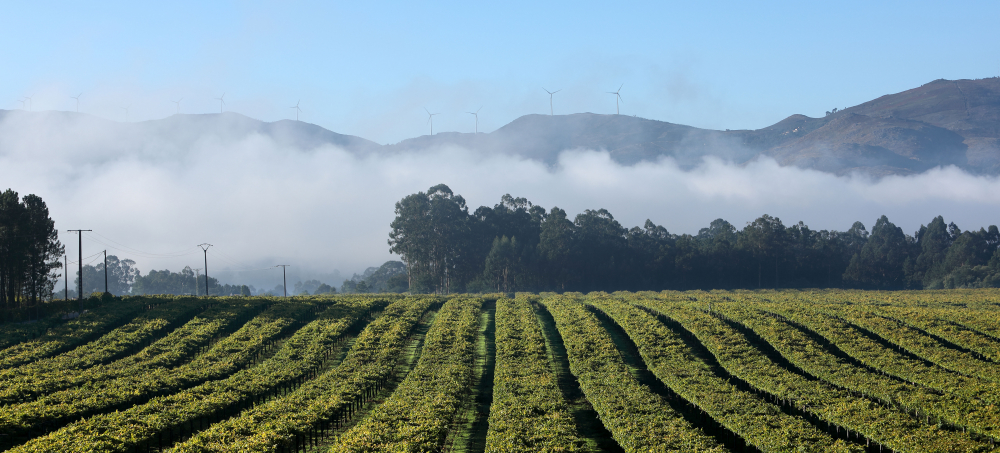Bodegas La Val was established in 1985 and was one of the first wineries in DO of Rias Baixas which itself was only established in 1988. La Val's wines are produced solely from 100% estate-grown grapes which is unusual for the area where most wineries buy from local growers. Their holdings include 130 acres (53 hectares) of vines most of which are Albariño but also Loureiro and Treixadura. These hectares are divided into three vineyards: Finca Arantei (35 hectares planted in 1989), Finca Taboexa (13 hectares planted in 1990), and Finca Porto (5 hectares planted in 2012). The vineyards are trained in the pergola system which, in this very humid and rainy climate, allows for better airflow and ripening. The particular micro-climate of Condado do Tea allows them to be the first winery to open the harvest, which is typically in the first half of September, and thus protects them from the vagaries of later fall rains. Arantei and Porto both have clay and sandy loam-based soil with lots of pebbles. Taboexa has decomposed granite similar to the "saltier" wines of the Val do Salnes and is also at 350 meters in elevation whereas many of the Condado's vines are much closer to sea level. La Val's entry level Albariño is a blend of all three sites with Taboexa dominating the blend and giving this a less tropical Albariño feel and more of one reminiscent of something from further north, i.e. salty and fresh.
Jose Maria Ureta, the current winemaker, is extremely well respected in the D.O. and considered to be one of the young up-and-comers. As a winery concerned with quality first and foremost, the new vintages of their Albariños tend to release in May/June of the year following harvest. Because great Albariño grapes are very high in acid, they tend to taste very “bitter” young. Producers that do harsh filtering, fining, or sell slightly sweet styles do not worry about this and rush their wines to market early. Quality-minded producers, like La Val, let the new wine rest a bit longer in the tank so that the harshest aspects of the wines’ acidity have softened. "Chema" (Jose Maria) and La Val also strongly believe in using the indigenous wild yeast on the grapes to do fermentation. This makes these wines unique in their price point as so many others are inoculated and have a banana-like signature smell.
Beyond the great entry-level Albariño, they make some wines for bottle aging and later release called "Vendimia" and a very intriguing wine aged for years on the lees called "Sobre lias".
